Make real Kung Pao Chicken easily at home with this easy recipe. Bring the bold flavor of Sichuan cooking into your kitchen with juicy chicken, spicy chilies, and crunchy peanuts. Great for beginners!
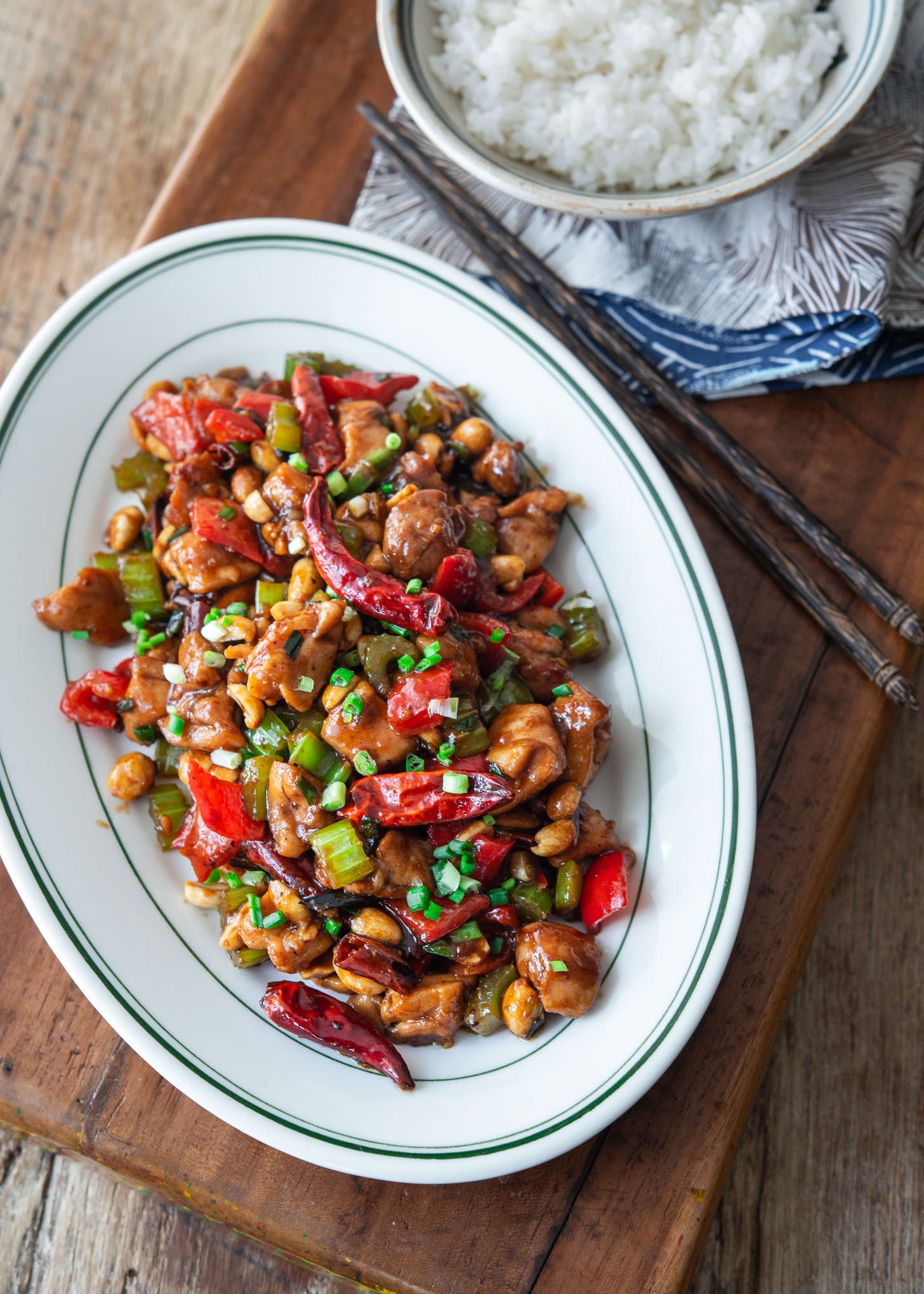

Kung Pao Chicken is one of my top choices for a chicken dish with a Sichuan twist. It’s got juicy chicken thigh pieces, tangy Sichuan peppercorns, hot dried chilies, and crunchy peanuts.
This dish is a common pick on Chinese takeout menus and is loved for its strong flavors. It comes from Sichuan province in China.
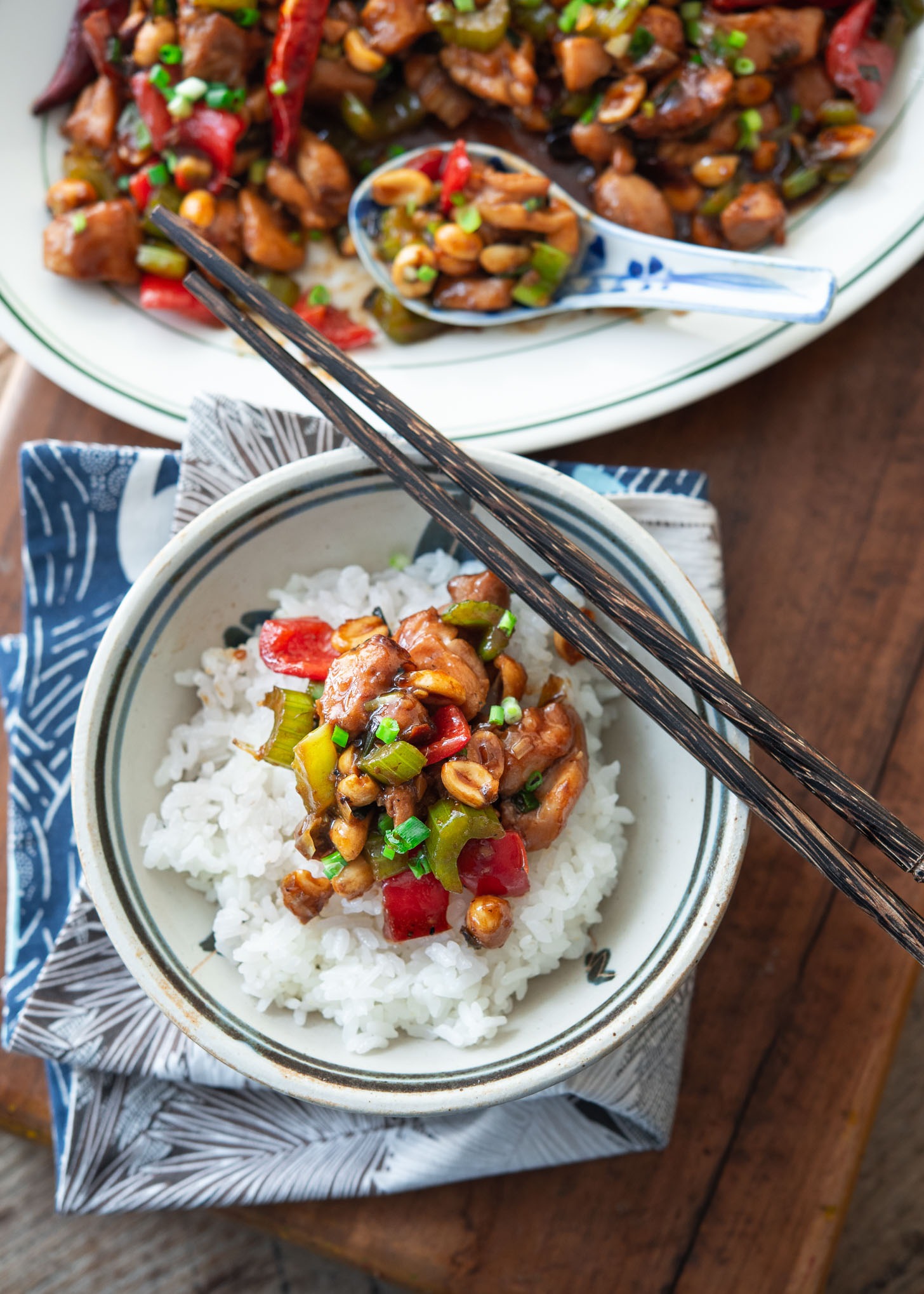

The Kung Pao Chicken commonly found in U.S. Chinese restaurants, including popular chains like Panda Express, may taste different from the traditional version in China and other regions in Asia with significant Chinese populations. It’s usually changed a bit to match what people in the U.S. like and the ingredients they can get.
I tried the real deal in Sichuan province years ago and totally loved it. Here’s a simple take on this classic dish.
I added some crispy veggies to create more complete and satisfying meal. You might find yourself really enjoying this version of an authentic Chinese chicken dish. Plus, it’s an easy recipe!
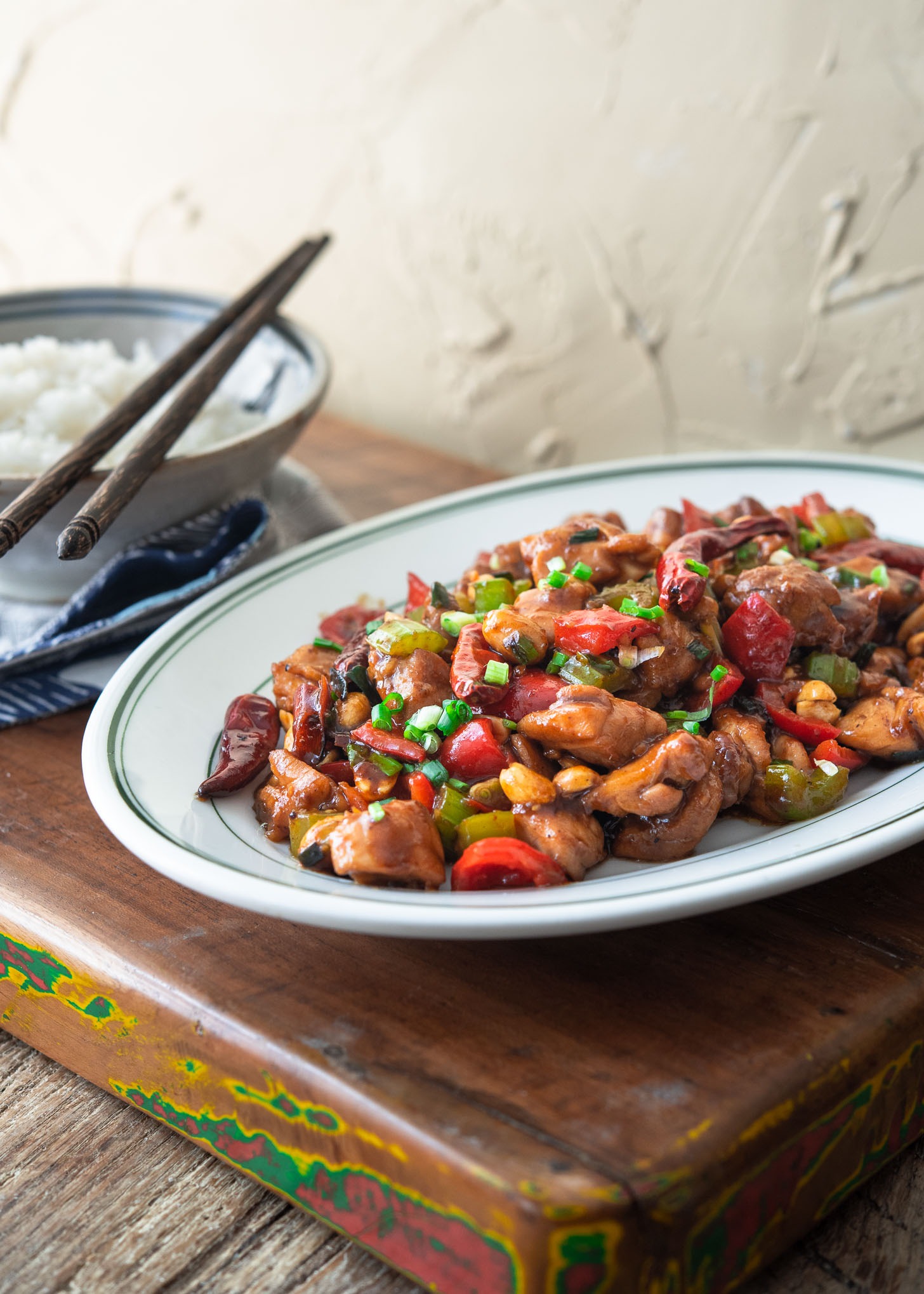

What is Kung Pao Chicken?
Known in Mandarin as 宫保鸡丁 (Gong Bao Ji Ding) and sometimes referred to as Kung Po, this dish is a famous Chinese chicken recipe from Sichuan province. It is especially notable for the use of Sichuan peppercornswhich impart a unique tingling sensation.
This dish is celebrated for its complex blend of flavors – a fusion of spicy, sweet, and savory notes. The key elements of this dish include tender chicken pieces, the crunch of peanuts, and the fiery kick of chili peppers. These ingredients are combined in a rich, velvety sauce creating its distinctively delicious character.
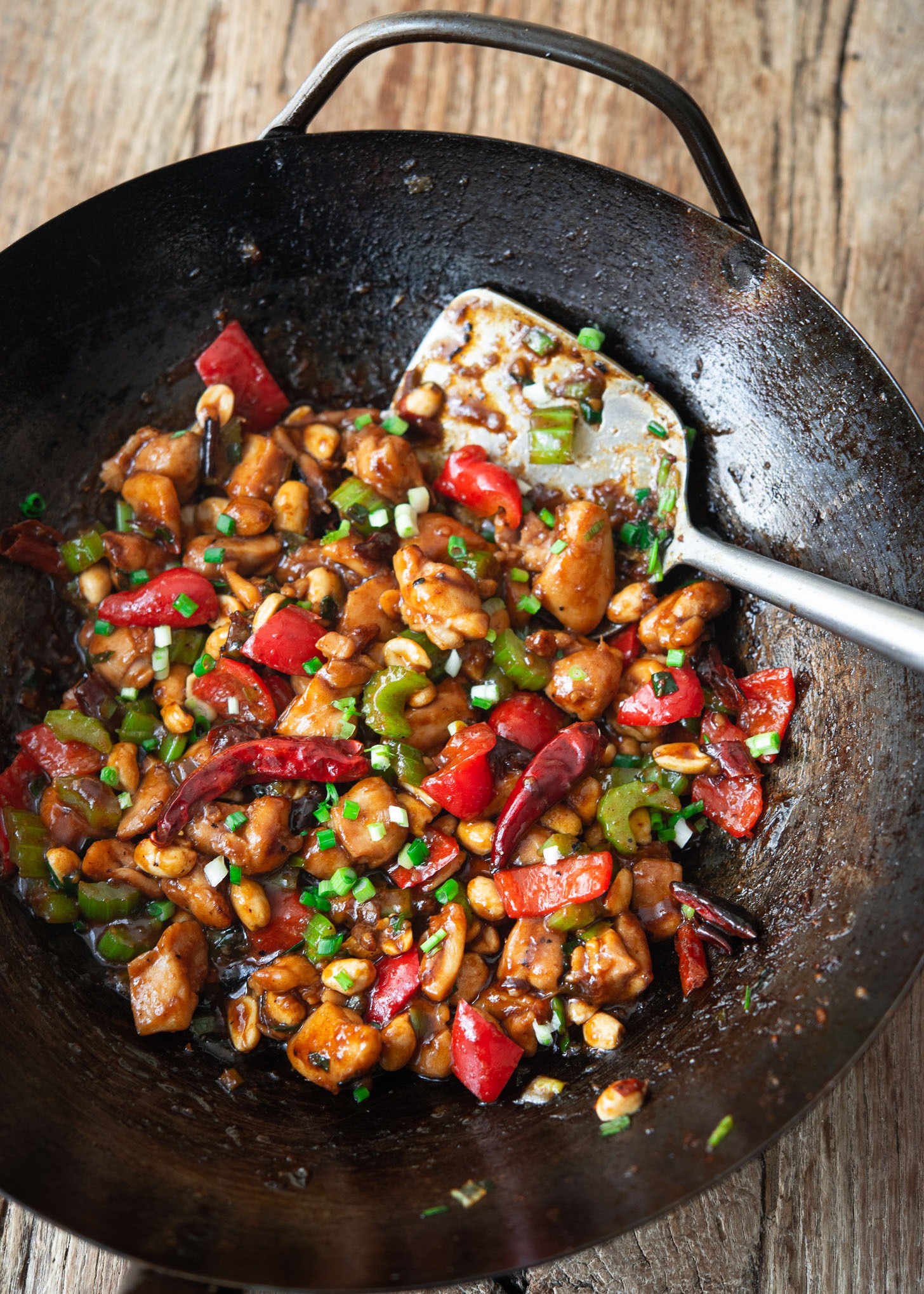

Kung Pao Sauce
The secret to great Kung Pao Chicken is in the sauce. This sauce is made from a blend of rich soy sauce, sweet honey, tangy Chinkiang vinegar, and aromatic Sichuan peppercorns, along with a variety of other spices.
When you cook the chicken and veggies, this smooth sauce covers them nicely, making every bite a perfect mix of spicy and sweet tastes.
Sauce Ingredients and Substitutions
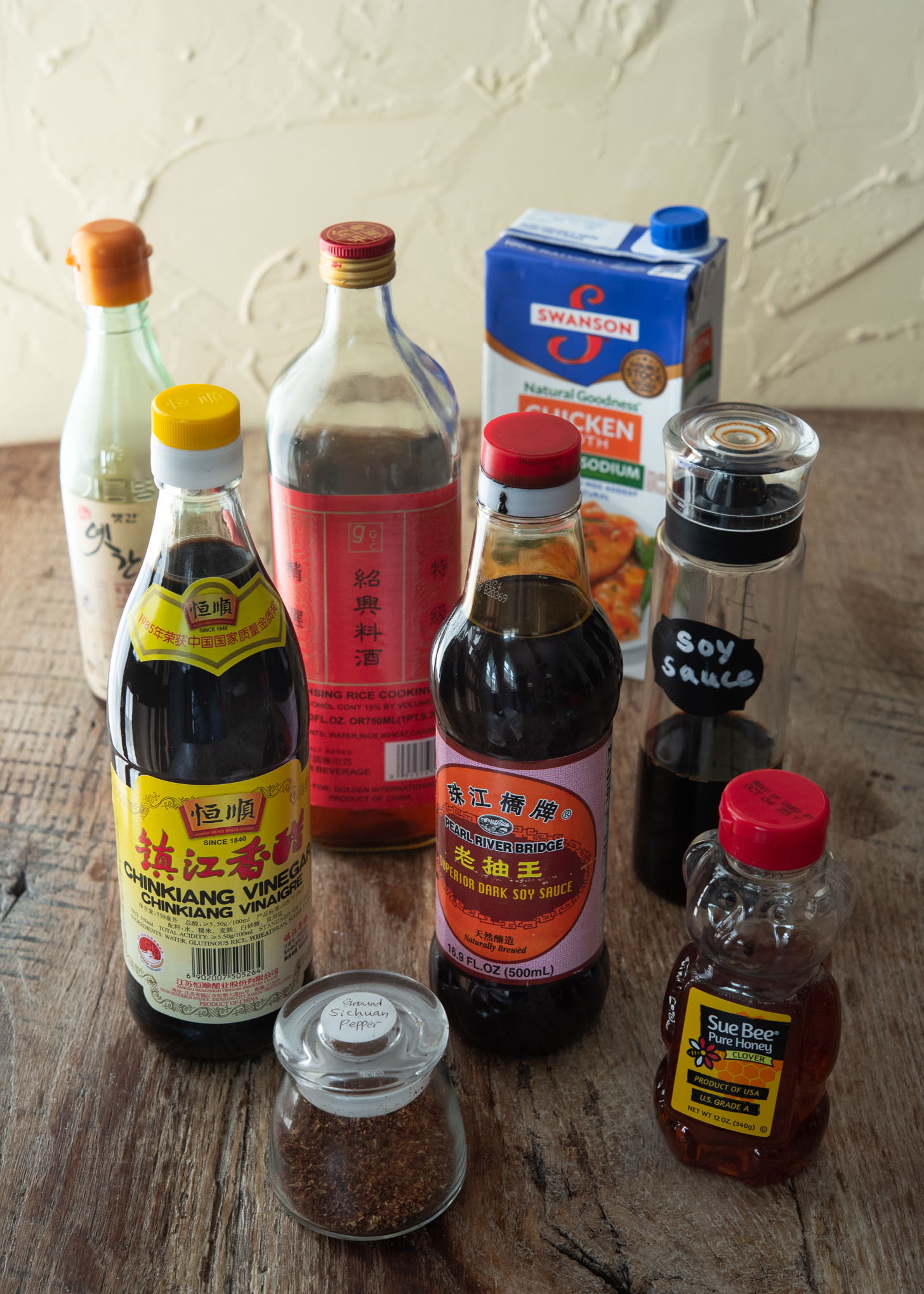

- I am willow: Staple in Asian cuisine, soy sauce adds a rich, salty flavor to the dish. No substitution is necessary.
- Shaoxing wine: Chinese rice wine, Shaoxing wine imparts depth to the dish. Substitute with rice wine or dry sherry if unavailable.
- Potato starch: Potato starch gives the dish a beautiful sheen. If not available, use cornstarch as a substitute.
- Dark soy willow: Enhances the dish with a savory flavor and dark color. Replace with regular soy sauce if needed.
- Chinkiang vinegar: Dark, flavorful Chinese black vinegar. You can find it in Asian markets. If unavailable, use rice wine vinegar or balsamic vinegar as a substitute.
- Honey: Adds a subtle sweetness to the dish. No substitution is necessary.
- Sesame oil: Imparts a nutty fragrance to the dish. No substitution is necessary.
- Chicken stock: Contributes more flavor than water, but plain water can be used if stock is unavailable.
- Sichuan peppercorn powder: Delivers the unique taste and fragrance of Sichuan cuisine. If unavailable, substitute with freshly cracked black pepper.
Main Ingredients
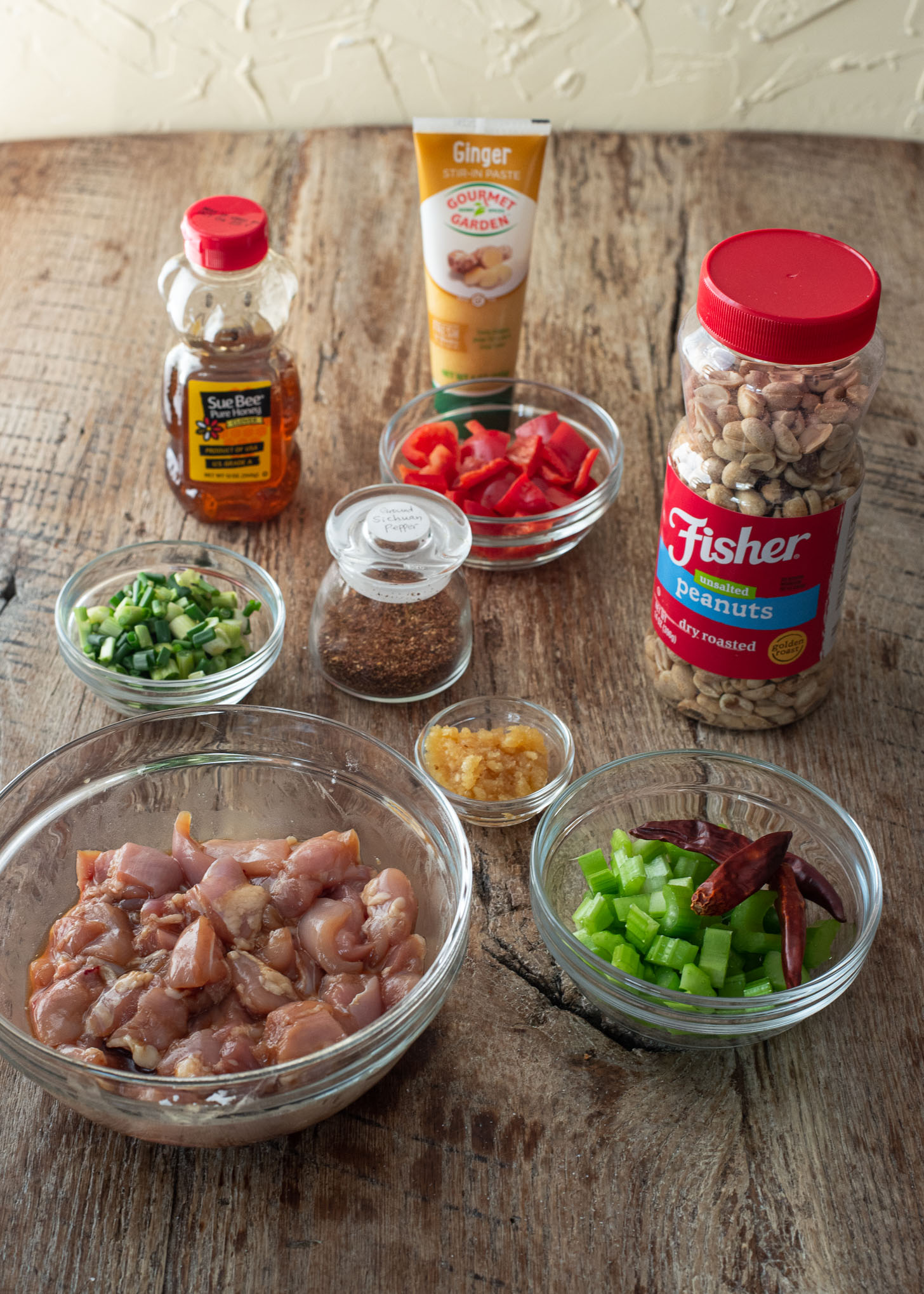

- Chicken Thighs: The star of the show, chicken thigh meat is juicy and tender, providing a succulent base for the dish. It is cut into small cubes and marinated to ensure maximum flavor penetration.
- Sichuan Peppercorn powder: These unique peppercorns are responsible for the signature numbing sensation in Kung Pao Chicken. Toasted and ground into a fine powder, they enhance the overall taste profile of the dish.
- Substitute with black pepper if not available.
- Dried Chili: Bringing the heat, dried chilies are essential in achieving that spicy kick. If you prefer lesser heat, remove the seeds from the chili before adding to the stir-fry.
- Substitute with red pepper flakes if dried chilis are not available.
- Peanuts: Essential for adding a delightful crunch, peanuts are a key component of this dish. To save time, try store-bought unsalted dry roasted peanuts.
- Substitute dry roasted cashews if peanuts are not available.
- Celery and red bell pepper: They lend savoriness and crunch to the dish, while also contributing to its nutritional balance.
- Garlic, ginger, and green onion: Savory additions.
How to make Kung Pao Chicken
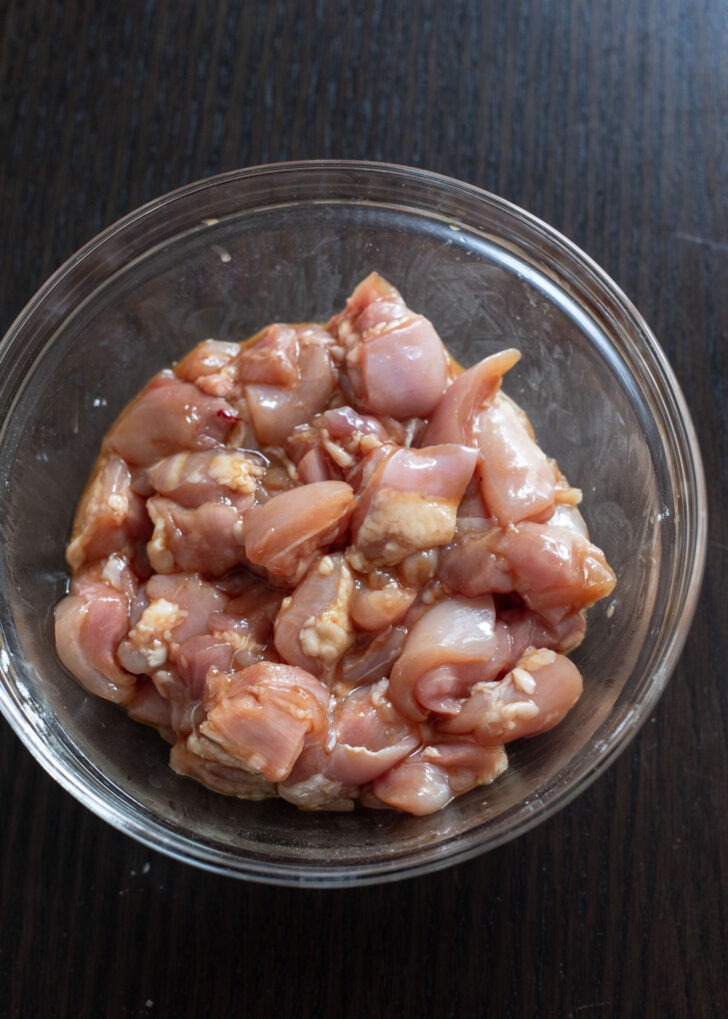

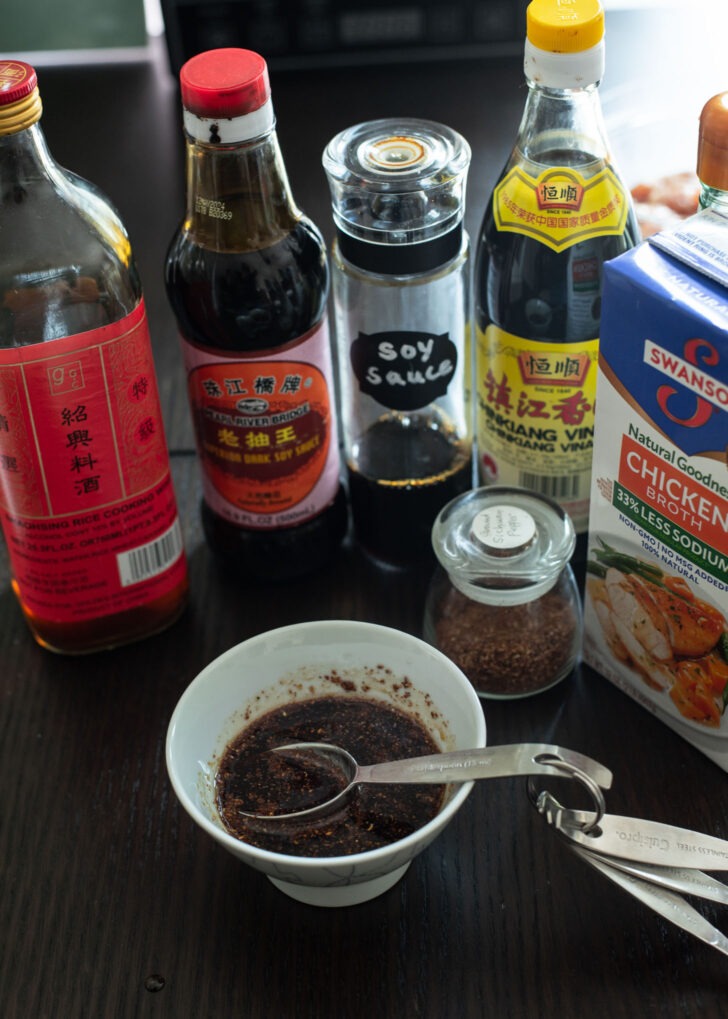

Step 1. Marinate the chicken:
Combine the chicken pieces with all the marinade ingredients in a bowl and let it rest for 10 minutes.
Step 2. Prepare the sauce:
In a small bowl, mix all the sauce ingredients together and set aside.
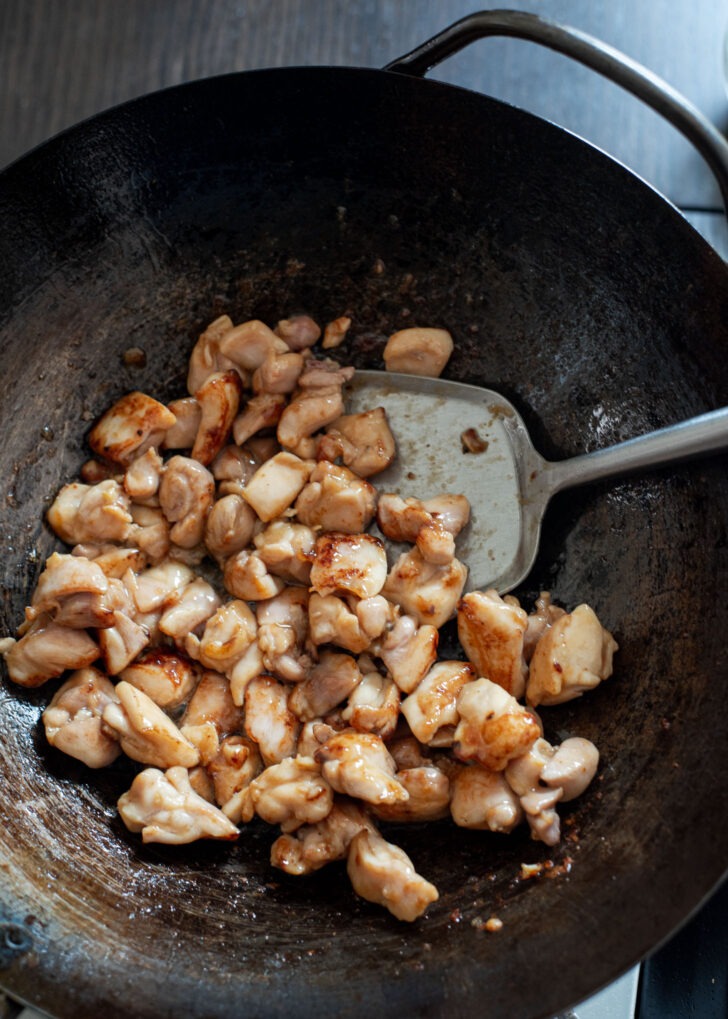

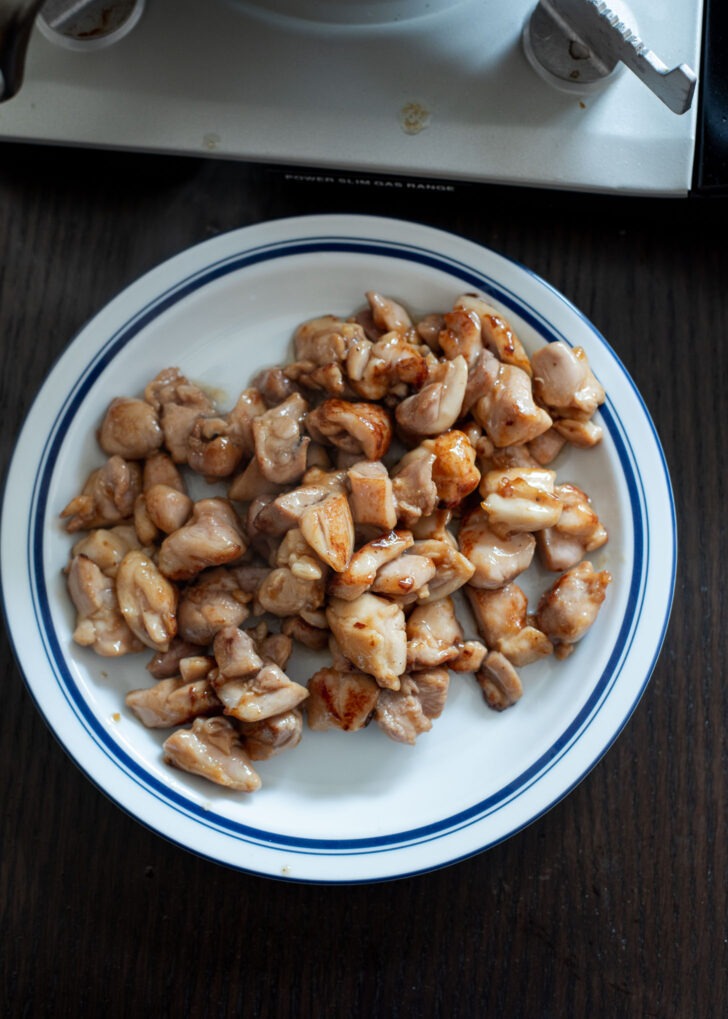

Step 3. Stir-fry chicken
Heat 2 tablespoons of oil in a wok or large skillet over high heat. Add the chicken and sear until fully cooked. Transfer the cooked chicken to a bowl and set aside.
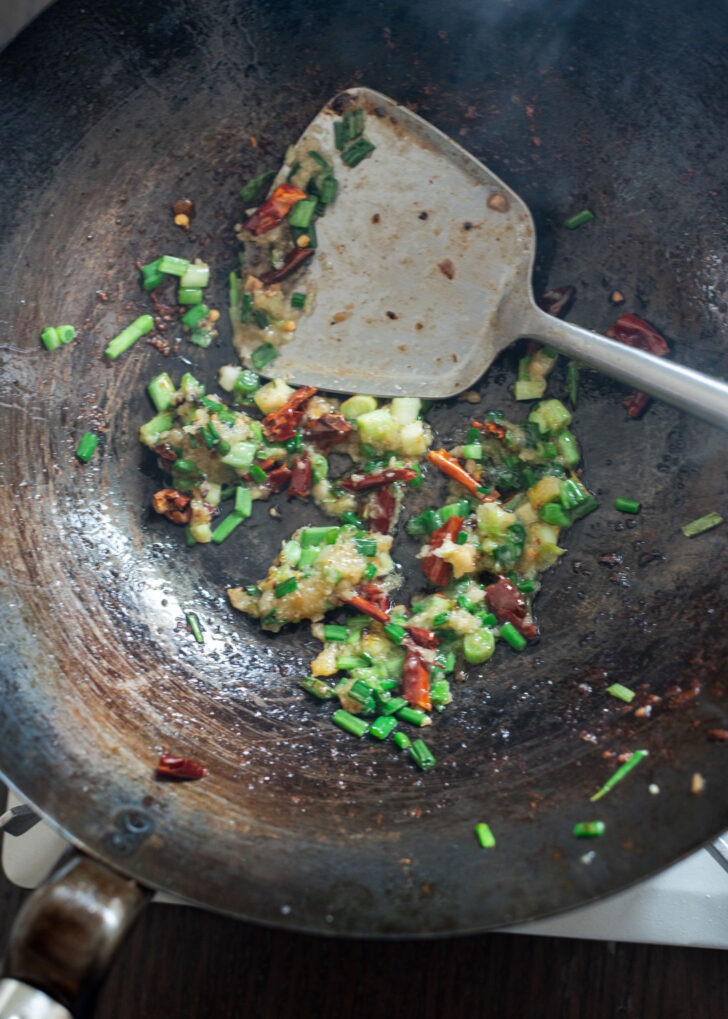

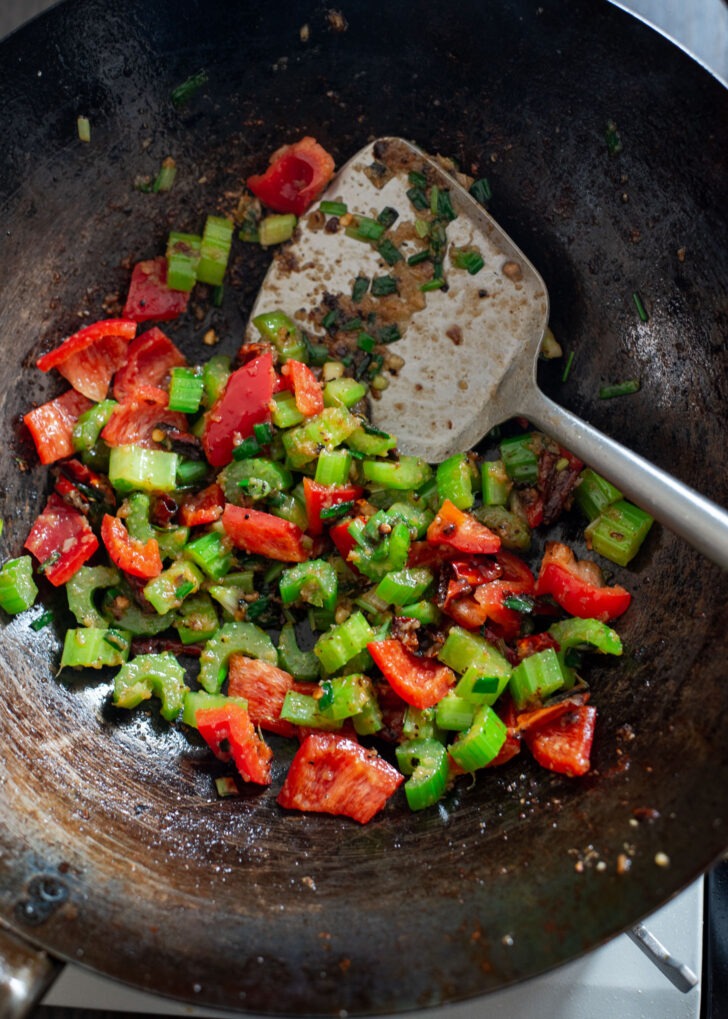

Step 4. Aromatic and vegetables
Heat the remaining 1 tablespoon of oil to the wok. Add garlic, ginger, crushed chilies, and green onion and stir-fry for 30 seconds. Add celery and pepper and stir-fry for 1 minute.
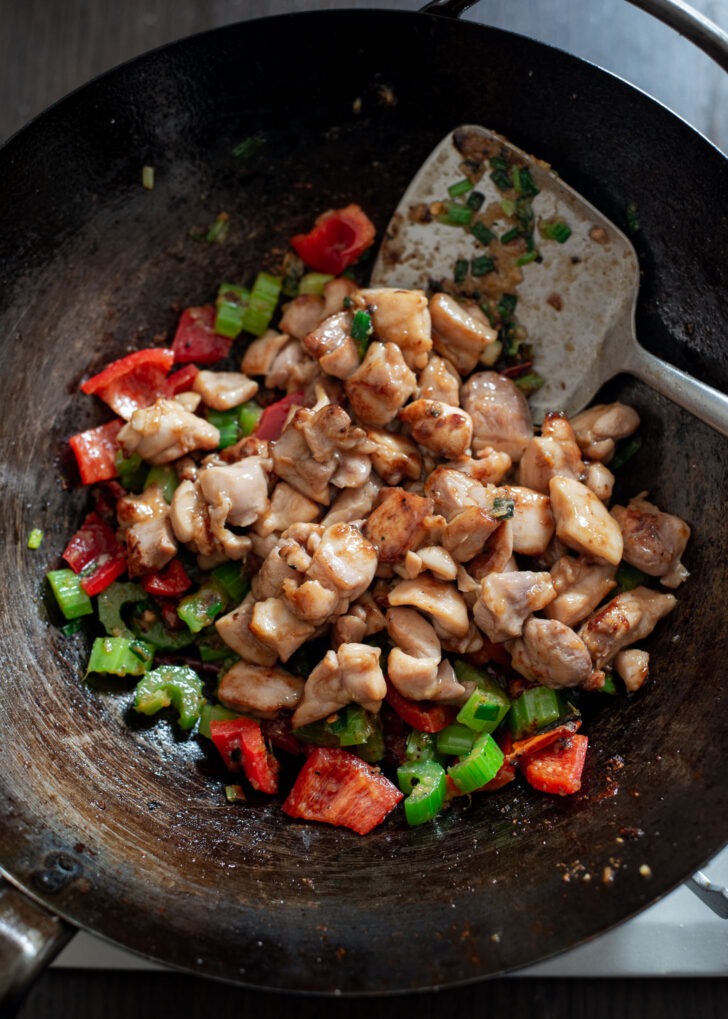

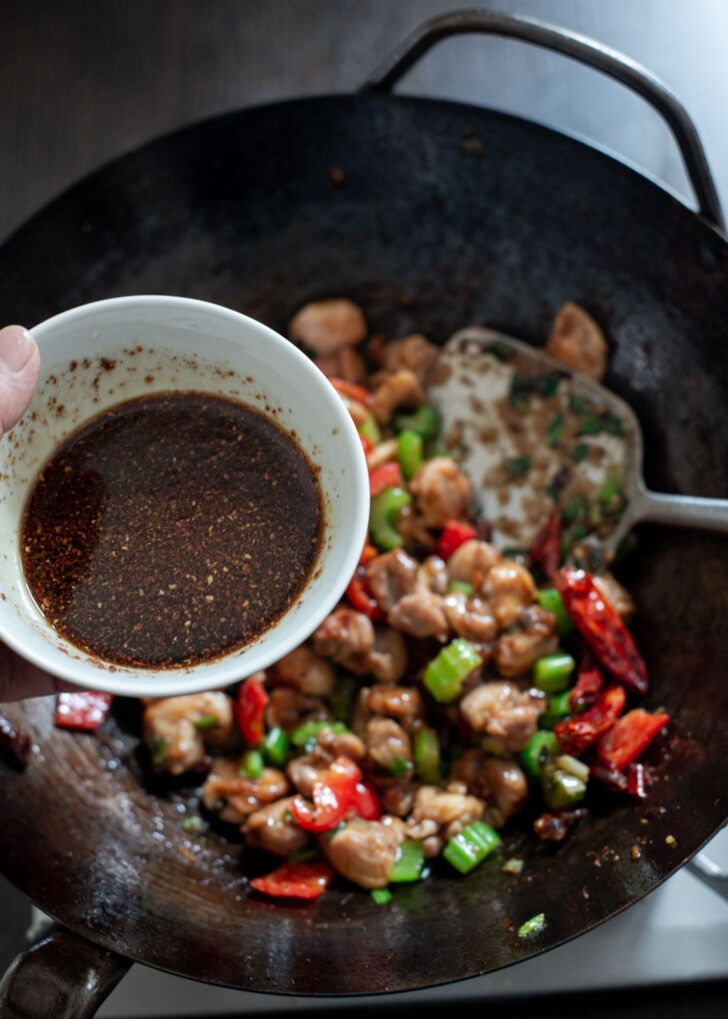

Step 5. Return chicken and the sauce
Return the chicken to the wok and heat through for about 30 seconds. Pour the sauce into the wok (stir it beforehand to reincorporate any settled cornstarch) and stir-fry for another minute. The sauce should thicken quickly.
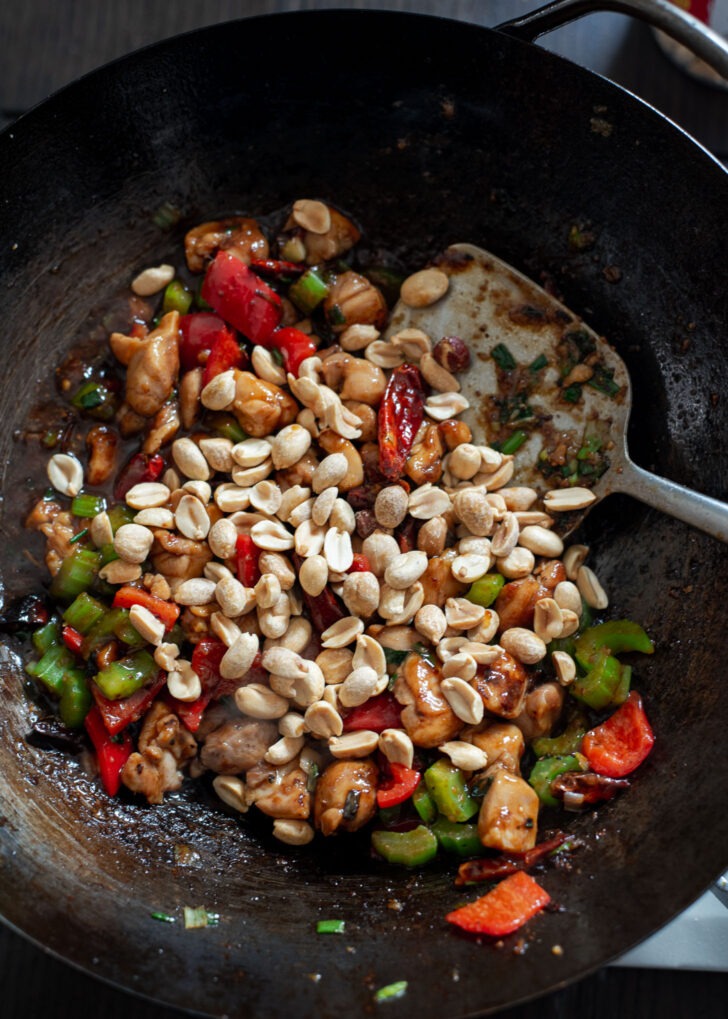

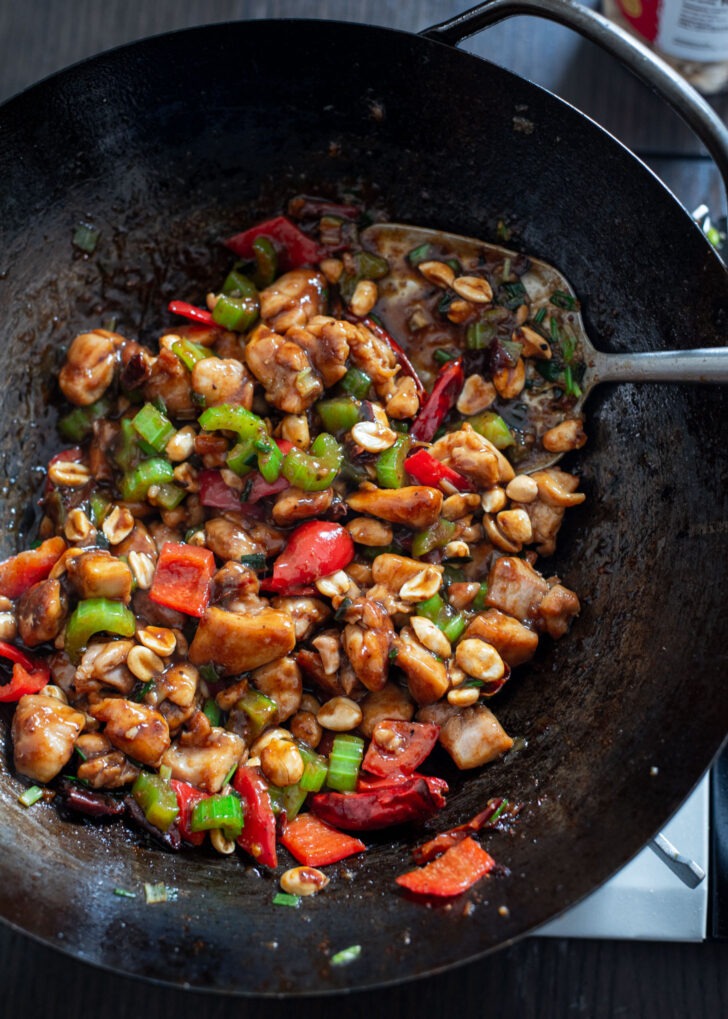

Step 6. Add peanut and serve
Add peanuts, toss well, and serve immediately. To enjoy the full flavors, serve it immediately with freshly cooked short grain rice.
ESSENTIAL TIPS FOR CHINESE STIR-FRY TECHNIQUE
- Cut ingredients into uniform sizes: Cut vegetables, meats, and other ingredients into uniform sizes to ensure even cooking.
- Prep all ingredients before cooking: Preparing all ingredients in advance, including washing, cutting, and measuring. It makes cooking a stir-fry quick and easy.
- Use a high heat: A high heat is essential for stir-frying, as it allows the ingredients to cook quickly while retaining their textures and flavors.
- Cook in batches: Avoid overcrowding the wok or pan by cooking in batches. This ensures that each ingredient gets cooked evenly and maintains its texture.
- Use the right oil: Use an oil with a high smoke point, such as peanut or vegetable oil, for stir-frying. This prevents the oil from burning and smoking, which can ruin the dish’s flavor.
- Add sauces at the end: Add sauces and seasonings towards the end of cooking to prevent them from burning or evaporating too quickly.
- Serve immediately: Serve the stir-fry immediately after cooking to preserve the flavors and textures of the ingredients.
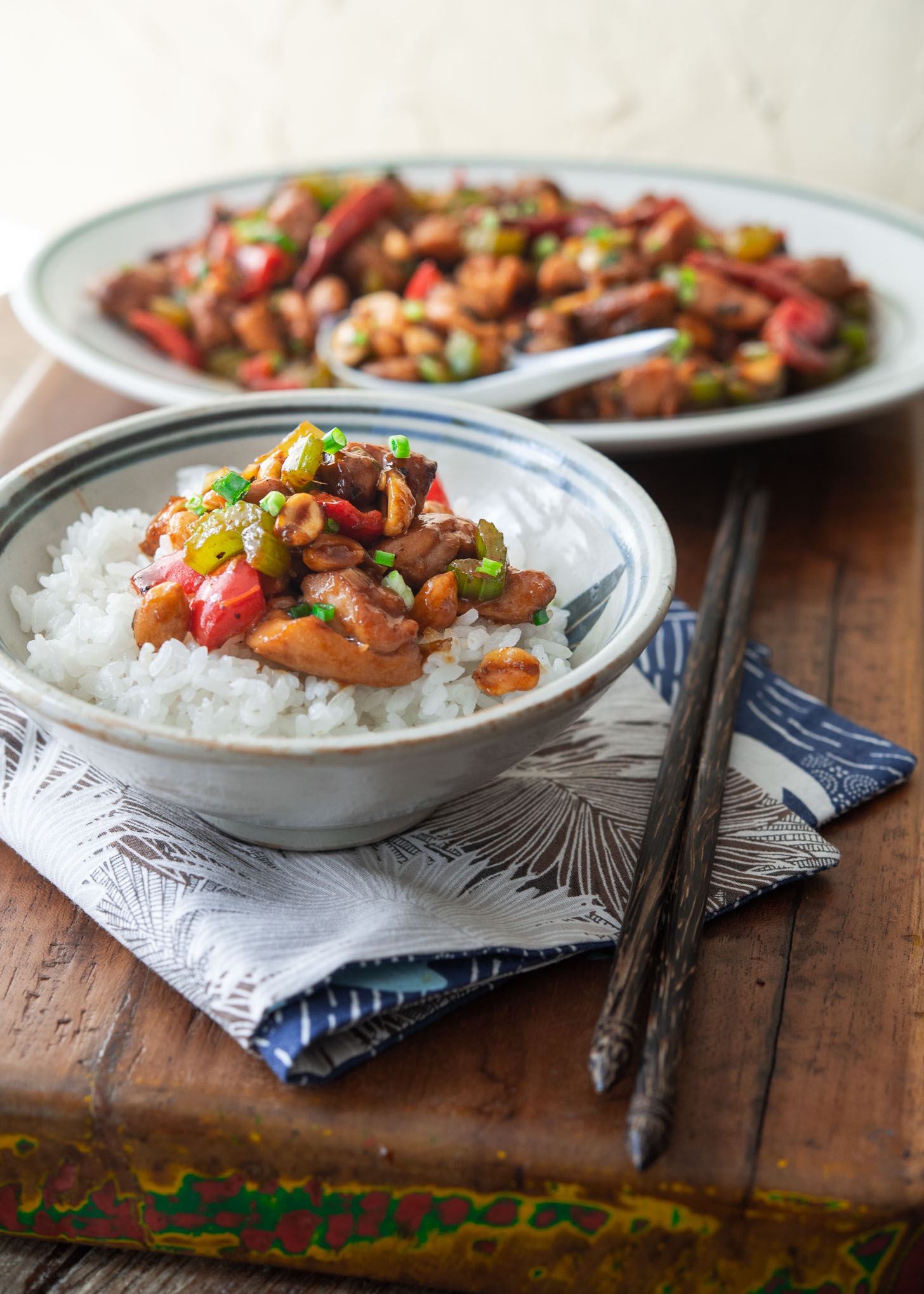

More Chinese Food You Must Try
Looking to explore the flavors of Chinese cuisine beyond your usual takeout order? Try these five mouth-watering Chinese dishes and take your taste buds on a culinary adventure!
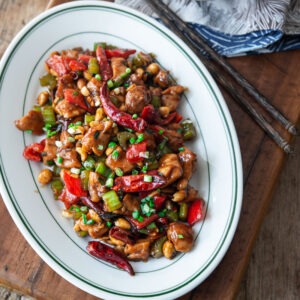

Easy and Authentic Kung Pao Chicken
Make real Kung Pao Chicken easily at home with this easy recipe. Bring the bold flavor of Sichuan cooking into your kitchen with juicy chicken, spicy chilies, and crunchy peanuts. Great for beginners!
- 1 lb (450 g) boneless skinless chicken thigh, cut into small pieces
- 3 tbsp oil, divided
- 4 green onion (white to light green parts), chopped
- 2 garlic cloves, minced
- 2 thin slices ginger, minced, or 2 tsp of ginger paste
- 4-6 dried chili, crushed (seed removed if needed)
- 2 celery sticks, chopped
- 1 small red pepper, chopped
- 1/2 cups (70 g) unsalted dry roasted peanuts, or cashews
To stir-fry kung pao chicken
-
Heat 2 tablespoons of oil in a wok or large frying pan on high heat. Cook the chicken in it until it’s thoroughly done. Then, move the cooked chicken to a separate bowl and keep it aside.
-
Heat the remaining 1 tablespoon of oil back into the wok. Then, put in the garlic, ginger, crushed chilies, and green onions, and stir-fry them for 30 seconds. Next, toss in the celery and pepper, and continue to stir-fry for another minute.
-
Put the chicken back into the wok and warm it up for around 30 seconds. Before adding the sauce to the wok, give it a quick stir to mix in any cornstarch that may have settled. Then, stir-fry everything for another minute. The sauce will thicken up fast.
-
Toss in the peanuts, mix everything well, and serve right away. For the best taste experience, enjoy it immediately alongside freshly cooked white rice.
Calories: 397kcal, Carbohydrates: 13g, Protein: 28g, Fat: 26g, Saturated Fat: 4g, Polyunsaturated Fat: 6g, Monounsaturated Fat: 14g, Trans Fat: 0.1g, Cholesterol: 108mg, Sodium: 851mg, Potassium: 573mg, Fiber: 3g, Sugar: 5g, Vitamin A: 1280IU, Vitamin C: 41mg, Calcium: 41mg, Iron: 2mg

